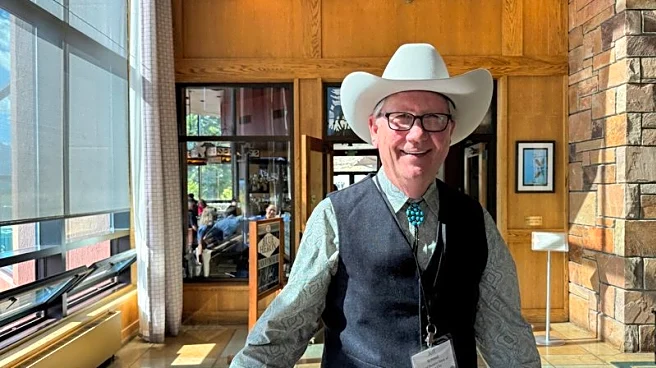(Reuters) -Kansas City Federal Reserve Bank President Jeff Schmid on Monday signaled he is disinclined to cut interest rates further, arguing that as the Fed navigates between the twin risks of overly tight and overly easy policy, it should stay focused on the danger of too-high inflation.
Schmid supported the Fed's September quarter-of-a-percentage-point interest-rate reduction, calling it appropriate risk-management given the cooling in the labor market.
But, he said, a wide range of indicators suggest
the job market overall remains healthy, while inflation remains too high, with services inflation looking to have settled in at around 3.5% in recent months, well above the Fed's 2% target for inflation.
"One worrying sign is that price increases are also becoming more widespread," Schmid said, noting that by August almost 80% of categories tracked in official inflation statistics had increasing prices, up from 70% at the start of the year. "Overall, I am anticipating a relatively muted effect of tariffs on inflation, but I view that as a sign that policy is appropriately calibrated rather than a sign that the policy rate should be aggressively lowered."
Schmid noted that Fed policymakers face tradeoffs - cut rates to boost the labor market and there is a risk of higher inflation, but set rates high enough to lower inflation and there is a risk that unemployment could be pushed up.
"Constraints lead to difficult decisions over how to balance competing objectives, and the Fed has been tasked with these difficult decisions when it comes to inflation and employment," Schmid said. "In balancing this constraint, my view is that the Fed must maintain its credibility on inflation."
The economy has momentum, Schmid said, and AI-related software spending has bolstered business investment, which usually weakens when interest rates are high. Equity markets are near records, and corporate bond spreads are narrow, he noted.
"Overall, given the state of the economy and financial markets, I view the current stance of policy as only slightly restrictive, which I think is the right place to be," Schmid said.
The Fed next meets to set interest rates in late October, and financial markets are currently pricing in a high likelihood of another quarter-point interest-rate cut.
(Reporting by Ann Saphir in Berkeley, California; Editing by Matthew Lewis)















